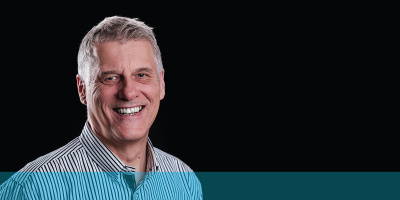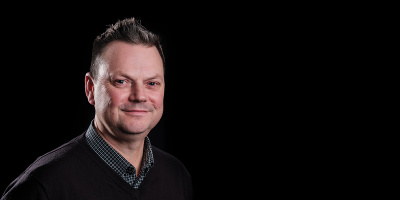Alberta Sheriff makes a cross country journey to raise PTSD awareness and healing.
Nightmares. Flashbacks. Anxiety. High blood pressure. Nausea.
These are only some of the ways Post-Traumatic Stress Disorder (PTSD) can affect people.
PTSD can be the result of a single event or from the cumulative effect of many. It can come from experiencing or witnessing violence, abuse or serious injuries. It can also occur after stressful life events such as divorce, job loss or losing a loved one. It can happen to anyone. It might appear immediately, or it might surface years later. Chad Kennedy is no stranger to PTSD.
His father, a now-retired RCMP member, was diagnosed with complex PTSD in 2002. His dad struggled finding help because, back then, the diagnosis was usually reserved for military veterans. It took years for the medical profession to recognize PTSD strikes far beyond the military.
In 2018, Kennedy received his own PTSD diagnosis.
Working as a Sheriff with Alberta’s Highway Traffic Patrol, Kennedy patrolled Highway 63, which links Fort McMurray and the oilsands to the rest of Alberta. It earned the name ‘Highway of Death’ as a result of decades of accidents.
“It seemed like every time we laced up and went to work there was something bad going on … It was horrible,” he recalls.
He tried therapy, but it didn’t feel effective. Like many other workers, he tried to push through it.
Then came the Columbia Ice Field bus crash in July 2020. Three people were killed and 24 were critically injured. Another post-traumatic stress injury on top of his previous diagnosis led Kennedy to giving therapy another try.
But then a new and horrible thought occurred to him, says Kennedy, a member of AUPE Local 003 since 2008.
“On August 2, 2020, I was sitting in the backyard genuinely thinking about suicide.”
He thought about his father and all those like him who suffered in similar situations through no fault of their own. Out of nowhere, the idea of running across the country came to him. He recalls thinking: “Why don’t we raise some awareness?”
After putting together a road crew, logistics team and the other infrastructure required for the endeavour, Kennedy set off from Cranbrook, B.C., on April 4, 2022.
Although he had been physically training for the trek since the previous August, he had not anticipated just how mentally rigorous the journey would be. After spending the first six weeks rocking out to Def Leopard while he walked, he realized that while the music was a good distraction from the pain in his feet and his legs, it was interfering in the work he needed to do.
“I stopped listening to music just so I can hear and feel everything that’s going on.”
For Kennedy, the reception at every stop has confirmed how widespread PTSD is.
“I didn’t realize that this campaign would generate so much interest across the country,” he says.
While hearing stories about people’s resilience and healing has been important for his therapy, it carries a flipside.
“You hear the horrible stories,” he says. “The stories of suicides when you’re chatting with family of people who have died by suicide because of post-traumatic stress. It’s a hard pill to swallow.”
Kennedy adds that it’s been very humbling to find so many people comfortable sharing their stories, good or bad.
AUPE vice-president Bonnie Gostola, who chairs the union’s Occupational Health & Safety Standing Committee, says that there has been a recent spike in claims for PTSD and other mental-health diagnoses.
“Our members face some of the most challenging situations on the job, often assisting people during the darkest moments of their lives,” she says. “What Chad is doing to bring awareness to this issue is to be commended.”
Kennedy applauds everyone involved—from the Alberta Workers’ Compensation Board (WCB) to the long-term disability (LTD) insurer to Alberta Sheriffs to AUPE—for facilitating his journey. He acknowledges that some folks have difficulties navigating the system but tries to focus on the positive.
“The system has worked for me, so I promote that, and I promote the snot out of it just so people at least take that step to ask for help,” he says.
"Sometimes even reaching out for help is hard, particularly when you’re trying to navigate the bureaucracy of WCB or LTD insurance. We want members to know that we’ve got experts on staff to help them through the process and help them find the resources they need."


